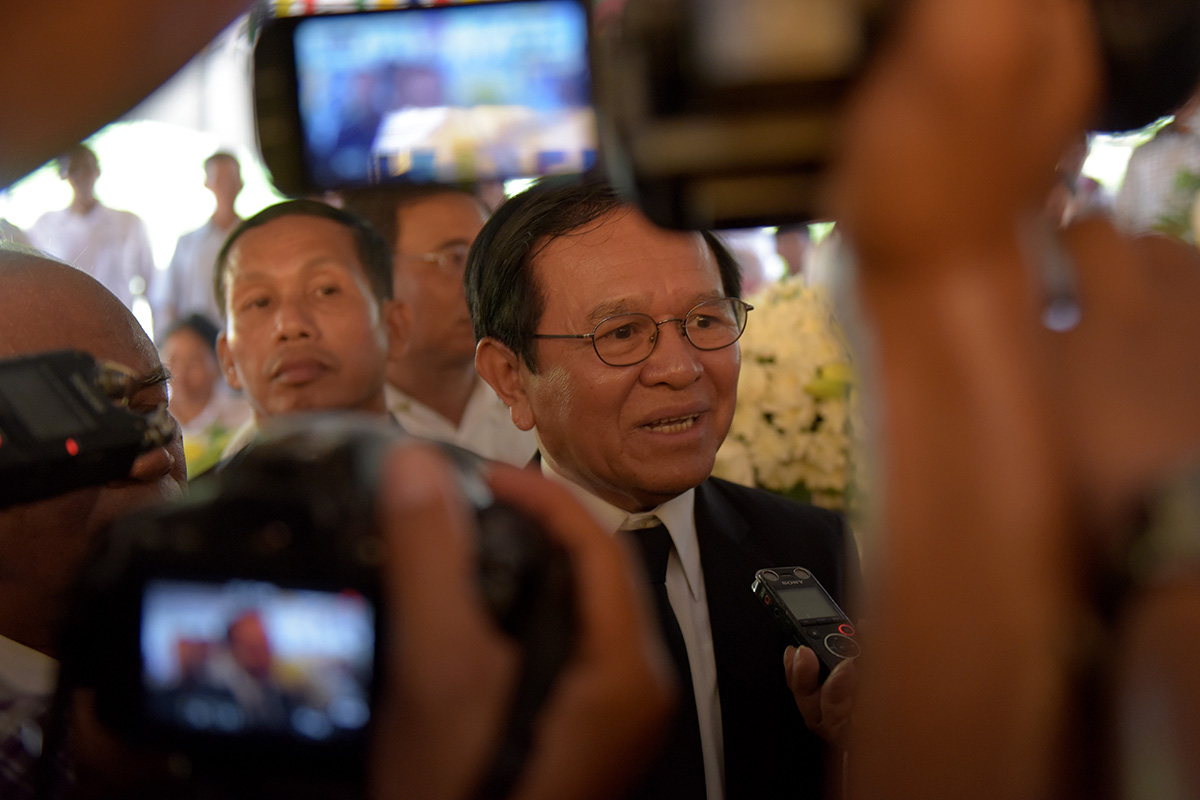The arrest of Cambodian opposition leader Kem Sokha on Sunday drew criticism from the mass public and many other international organisations. Kem Sokha, who is the opposition leader of the CNRP (Cambodia National Rescue Party), has been charged with treason and espionage on September 5, 2017.
According to a statement released by the Phnom Penh Municipal Court, the Cambodian opposition leader could face a jail term of up to 30 years if convicted. A Cambodian court said Kem Sokha was charged with “colluding with foreigners” under Article 443 of Cambodia’s penal code.
Cambodian Prime Minister Hun Sen, who has ruled the country for 32 years, is likely to benefit from the arrest in the nation's upcoming election in 2018. Critics suggest that the motive behind the arrest is to silence all opposing views against the government. The nation’s leading independent media outlet, The Cambodia Daily, was also forced to shut down due to allegations of unpaid tax. However, the daily refuted this exorbitant claim saying that “it has been targeted for an astronomical tax assessment, leaks and false statements by the tax department and public vilification by the head of government before an audit, much less a legal proceeding.”
Another article published by The Cambodia Daily on August 9, 2017, highlighted that “to be intimidated by his political foes is nothing new for Hun Sen.” With the next general election drawing closer, Hun Sen's actions indicate that he is intimidated by the CNRP and wishes to avoid a repeat of the 2013 election where he had nearly lost due to continuous criticism from the opposition.
When The ASEAN Post contacted Monovithya Kem (the daughter of Kem Sokha), she said “there is nothing in particular that 'triggered' his arrest other that there is an election coming up and the ruling party wants to cripple CNRP.” When speaking about Hun Sen’s political agenda, she said the regime is making sure the 2018 election will not be free and fair by taking several drastic actions recently.
Sophal Ear, the Associate Professor of Diplomacy and World Affairs at Occidental College in Los Angeles said that assuming the ruling party ceded power (something it refused to do in 1993), the situation could be disastrous. “Thanks to globalisation, those in power act as gatekeepers to everything that comes in and goes out of Cambodia,” he told The ASEAN Post via an email reply.
Investigators from the UK-based Global Witness revealed how members of Hun Sen's family has taken full or partial control over companies with a total market capitalisation of more than 200 million dollars, in a report titled Hostile Takeover released on July 7, 2016. These companies span across most major sectors and are also linked to international brands such as Apple, Nokia, Visa, Unilever, Procter & Gamble, Nestle, Durex and Honda. The report shed light on a huge network of secret deal-making and corruption that has underpinned Hun Sen’s 3 decades of dictatorial reign which has been marred by murder, torture and the imprisonment of his political opponents. According to the report, the premier’s family has been the key to the longevity of his political career. His family members hold key positions in Cambodian politics, the military, police forces, the media, and various charities - sectors that propped up Hun Sen’s party through propaganda, political donations or brute force.
When commenting on Hun Sen’s family business empire and the extent of its wealth, Ear warned that such speculation is extremely dangerous. “The last time someone talked publicly about the Global Witness report, which attempted to answer precisely this question, that someone died,” Ear added.
